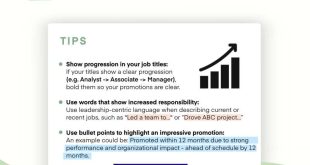Best Civilian Jobs For Military Officers – All the skills you gain while being a combat engineer in the military can help in a future career in the civilian world.
Here are some civilian jobs after military service as an engineer (combat engineer, construction, electrician, etc.). These job descriptions include salary information, education and training requirements.
Best Civilian Jobs For Military Officers
Electricians work and install cables in homes, businesses, factories. They work indoors, outdoors, in new construction, renovations or installing new equipment. There are many levels to becoming an electrician, including cable supervisor, electrician, and master electrician. Combat engineer experience, such as working with explosives cables, can be helpful in this position.
Military Jobs That Transfer To Civilian Life (plus Faqs)
Just like the military, you must have a high school diploma to start. However, in many countries you must pass an exam before starting an internship. The best way to prepare for exams and a career as an electrician is to take classes at a local junior high school or vocational school, or join a training program at your local electricians union.
Apprenticeships can last several years and allow you to learn the trade and prepare to become an independent electrician. After completing your apprenticeship, you should become licensed in your state, if your state requires it, or in your city or county, if they require it.
>> Find opportunities with recruiters and staffing firms who want to help veterans and military personnel. Get started now!
Being involved in construction can also be a good post-combat engineering career option. Use the skills acquired in the military.
Military To Civilian Resume: Examples & Templates (2023)
Similar to electricians, construction workers can work in commercial, industrial, or residential construction. Building structures, bridges and road works. There are also options to start this career.
You can register as an apprentice and learn both in the workplace and in the classroom. Or take classes at a transfer or technical/vocational college. You can take a shorter program, sometimes just a few weeks, to get a certificate that you can use to find a job. You can also look for entry-level jobs to start right away. English, math, physics, and shop and welding lessons would be useful.
Finding a career as a construction inspector is a good option for someone who is already a combat engineer. As a building inspector, you will examine the quality of construction and safety of all kinds of buildings and make sure that the building complies with local and state laws, ordinances, and zoning codes. They use tools that take measurements, identify potential programs and sample materials.
Since working as a construction inspector may involve climbing tall ladders or crawling in tight spaces, it may be a smart idea to pursue this career after becoming a combat engineer. The knowledge and experience gained in this MOS can help you in this type of career.
No Line Between Us: How Military And Civilians Work Shoulder To Shoulder On Edwards Afb > Edwards Air Force Base > News
You need a high school diploma for this job, but some employers require more. Training requirements may vary based on your jurisdiction or state. It is a good idea to go to school for a certificate or an associate’s degree, and some earn a bachelor’s degree that allows them to replace work experience when looking for a job. Many states also require licensing or certification. You can also earn additional certifications to help you become more employable.
Another option is to become a civil engineer after a military career. To become a civil engineer, you must have a thorough knowledge of engineering, especially the construction of roads, dams, buildings and networks. Combat engineers have received this type of training during their time in the military. Those with knowledge or interest in building and maintaining large-scale infrastructure, as well as managers with good organizational skills, will be successful in this career.
As a civil engineer, you plan, design, construct, monitor, operate, build and maintain infrastructure projects and systems in the public and private sectors. This will include roads, buildings, airports, tunnels, dams, bridges, and water supply and sewage treatment systems. Some of the most common employers for structural engineers are engineering services, state, local, or federal government, and non-residential construction companies.
To work as a civil engineer, you need a bachelor’s degree. Getting a master’s degree is better if you want to get a higher position. Some of the classes you will take for this degree are mathematics, statistics, engineering mechanics, and systems. Licensing requirements to work as a civil engineer vary depending on your state.
Civilian Jobs For Military Police (mp): Jobs After Military Police
The United States began building military engineering capabilities in 1775, when the Continental Congress established an army with a chief engineer and two assistants. Then, in 1802, the President organized the Corps of Engineers.
In the Army, combat engineers are part of the United States Army Corps of Engineers and are classified under MOS 12B. The Army Corps of Engineers is a branch of the Army, with about a dozen jobs, including chief power plant specialist (MOS 12P), bridge crew (MOS 12C), main power plant specialist (MOS 12P), chief power plant specialist (MOS 12P), and carpenters and masonry specialists (MOS 12W) who often do their jobs in combat situations.
The Navy has a Corps of Civil Engineers and Seabees that make up the Naval Construction Force (NCF) of the United States Navy. The Navy Seabee community consists of Occupational Field-7 ratings – Builder (BU), Construction Electrician (CE), Construction Mechanic (CM), Engineering Assistant (EA), Equipment Operator (EO), Steelworker (SW), and Utilities Technician ( UT).
In the Air Force, you can find Civil Engineering Engineers and Combat Engineers in the role of Rapid Engineer Transplantable Heavy Operational Repair Squadron Engineer unit known as “Red Horse”. Air Force engineering specialties include construction specialist (AFSC-3E3X1), electrical systems specialist (AFSC-3E0X1), utility systems specialist AFSC-3E4X1, engineering specialist (AFSC-3E5X1), and explosive ordnance disposal specialist (AFSC-3E8X1).
Veterans And Military Personnel
In the Marine Corps, combat engineers are classified under 1371 MOS. Which is part of a large group of occupations related to combat engineering (1300 MOS series). Other marine engineer jobs include jobs like MOS, heavy equipment mechanic (MOS 1341), engineering equipment operator (MOS 1345), and metal worker (MOS 1316).
When you’re trying to decide what to do after your military career is over, it can be helpful to know what jobs will work with your MOS. Think about what you like about being a combat engineer and go from there. There are many different options.
Julie Provost is a freelance writer, blogger and owner of Soldier’s Wife Crazy Life, a support blog for military spouses. She lives in Tennessee with her National Guard husband and three boys. If you have served in the military as an MP, which means military police, you likely have many options for a post-military career.
While becoming a civilian police officer may be the most streamlined option, there are other options. Here are four more options for those who have served in the military in a military police or similar MOS or career.
Biden’s Military Brain Trust Includes Former Navy, Marine Corps Top Leaders
>> Find a job at a company that wants to hire veterans and transitioning military personnel. Click here to get started today!
If you have good communication skills, can remain calm and good at observing different situations, so loss prevention specialist may be the right path for you. A loss prevention specialist helps combat the problem of both shoplifters and employee theft. Their duties include conducting investigations and stings of retail employees suspected of theft or fraud, arresting and arresting potential shoppers, notifying the police of arrests, and more. They work closely with law enforcement and store management.
To become a loss prevention specialist, you must have at least a high school diploma or GED for an entry-level position. Having an associate’s or bachelor’s degree can help in supervisory positions. You should also get a certificate. You will primarily work from home at a large retailer.
If you want to work in a prison, you might want to become a corrections officer. Although it is a dangerous job, it can be permanent. Correctional officers will work in prisons or jails to help maintain order. In addition to prisons or jails, they may also work in courthouses or other types of detention centers. They will book and search incoming prisoners, guard prisoners, help prevent fights and riots, transport prisoners and make sure everything is in order.
Reasons To Join The Military (plus 5 Considerations)
A college degree is not required to work as a corrections officer, but a high school diploma or GED is required. Most states require extensive academy training and certification. You must also be in good physical shape, able to communicate and have good communication skills. You can work in a local sheriff’s office or in a state or federal prison.
Civilian jobs for military intelligence officers, civilian jobs for military, best military jobs for civilian life, civilian jobs for army reserve officers, civilian jobs for military officers, best civilian jobs for military, best military mos for civilian jobs, best military branch for civilian jobs, jobs for military officers, civilian jobs for army officers, best jobs for military officers, civilian jobs for marine officers



